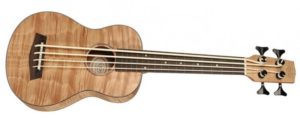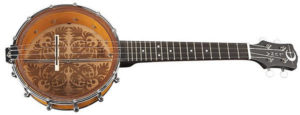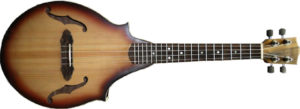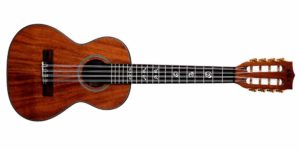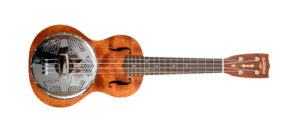Freeway Music — Columbia, SC’s Premier Music School
Ukulele Types – Finding the Right Ukulele for You
Ukulele has become the new craze. Artists like Megan Trainor and Vance Joy, and companies like Kala have really helped create this buzz. In fact, Kala has so many cool varieties now, it’s really easy to be confused when walking into a music store to pick out a uke. So, let’s break em’ down.
1. Soprano Ukulele
This is probably the most common ukulele used. It’s the one used in “Riptide” by Vance Joy and also “Somewhere Over the Rainbow” by Iz. It’s simply the smallest body, and the tuning is AECG(high to low). It’s essentially like removing the lowest two strings on the guitar, and putting a capo on the 5th fret. The only difference is the G is one octave higher. Chord shapes are similar to guitar, but have different names, making it a good “gateway instrument” for uke to guitar. However, it makes it quite confusing initially to go from guitar back to uke.
2. Tenor Ukulele
This is where buyers get confused. A tenor uke is the identical tuning as a soprano, except the body is a bit bigger. It simply gives the uke a little of a bigger sound. Some players like our very own ukulele instructor Jessica Skinner, of Prettier Than Matt, change the G string to an octave lower. This adds even more body to the uke, and allows one to play a fuller scale length.
3. Baritone Ukulele
A Baritone uke is tuned exactly like the highest 4 notes of a guitar: EBGD(high to low). This is a very easy transition from guitar, as you simply remove the bottom two strings, making chords shapes and runs identical. This instrument is great if you desire a slightly lower register. Also, I encourage my students to experiment with a baritone uke, as it a great way to practice and master the highest four strings of guitar for soloing and comping, etc.
4. Uke Bass
We recently bought one of these in Nashville. It’s the exact same tuning of a standard electric bass guitar: GDAE(high to low). It is a much shorter scale, making it easier to get around the neck and play lines. The strings are typically a synthetic rubber, which is nice for pressing the strings, and a warm tone. However, the strings can be hard to slide in at times, and it’s hard to get a good attach out of the string. I have also discovered that almost all of them have a hard time getting the volume of the Low E string as loud as the other three. This is a fun instrument if you desire a warm upright bass kind of sound, and the cons don’t bother you too bad.
5. Banjolele
Take a ukulele and put a banjo head under the strings, and it is a banjolele. There is zero difference in tuning. The difference here is the sound. If you’ve ever heard a banjo, you’ll know what to expect. It creates a more twangy or spanky sound. This is probably an instrument for someone who already plays and owns a uke, and wants to branch out a bit. I wouldn’t recommend a student starting on this ukelele, as its sound is very specific.
6. MandoUke
Again, no difference in tuning here. The body is that of a mandolin, with f holes. It will again have a more specific sound. This also is probably not the first instrument you want to have, but that’s not my decision.
7. Eight String Ukulele
The eight string uke is tuned the same, but each string is doubled. This will simply create an effect of two ukes playing the same part simultaneously. Therefore, it will be louder and more full. It is a bit harder to press two strings at once rather. One should consider that when contemplating the purchase of an eight string uke.
8. Resonator Ukulele
This Ukulele has a resonator plate made of aluminum, similar to that of a Dobro or resonator guitar. If you want to be heard, this will definitely make that happen!
There are all kinds of Ukes body styles, colors, sizes available. It can be very daunting when you first walk into a store. Hopefully now you will be better informed when you walk into a store full of various ukuleles.
If you like this blog, you may like one of these blogs:

